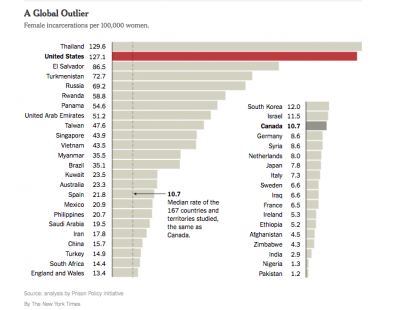Women Behind Bars Returning to the Community – Friends of Guest House
(July 31, 2017) Catherine Read delves into the unique challenges of women who are incarcerated in Virginia’s jails and prisons and what they face when returning to their local communities – including reconnecting with their children, finding support for addiction, and finding employment. Friends of Guest House based in Alexandria, VA, is a residential program that can accept 26 women at a time into their residential program. Founded in 1974, this program has helped about 3,000 women and their 4,000 children while accepting only 17 women at a time, until very recently when the program expanded to 26 residents and expanded from 3 months to 6 months.

The statistics are staggering for the growth of women in our jails and prisons. Their offenses are overwhelming low-level non-violent trangressions with many involving addiction, fraud, property damage, probation violations and theft. Many of those crimes are tied to issues of poverty. In 1970, 73 percent of counties across the United States reported zero women in their jails. Between 1970 and 2014, incarcerated women went from under 8,000 to nearly 110,000. Currently, nearly half of all jailed women are in small county jails which are funded and operated by local municipalities.*

Traumatized when they arrive, traumatized while incarcerated, these women have major hurdles to overcome when they are no longer behind bars and must navigate their way back to a sustainable life on the outside without the support of treatment programs and services to help with affordable housing, workforce development, healthcare, transportation and support for their children. This is where the Friends of Guest House have a proven track record of helping women to get their lives together in a way that is sustainable. While national recidivism rates are around 70 percent, for those who complete the Friends of Guest House residential program, that rate is less than 10 percent.
Scant attention has been paid to the struggles of women behind bars, the explosive growth in their incarceration, and the many social-economic-racial factors that have led to this national crisis. One fact alone should give this nation pause: an estimated 2.6 million children have a parent behind bars. When that parent is their only parent, we are almost ensuring that the cycle of poverty and prison will continue and will grow. There are alternatives to incarceration and more can be done for the women who find themselves incarcerated. It’s incumbent on us to do more both nationally and locally.
* From the published research: Overlooked: Women in Jails in the Era of Reform
** From “Mothers in Prison” – Nicholas Kristof, New York Times Nov. 25, 2016